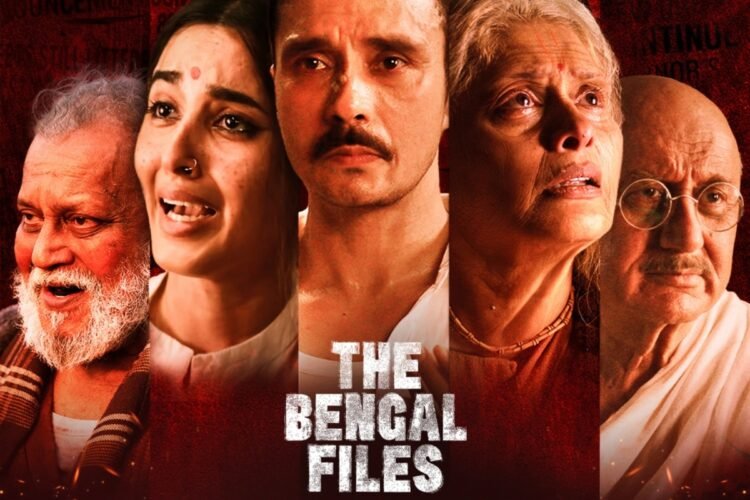Vivek Ranjan Agnihotri takes on the roles of writer and director for The Bengal Files, a film produced by Abhishek Agarwal and Pallavi Joshi. The project features prominent actors such as Mithun Chakraborty, Pallavi Joshi, Anupam Kher, and Darshan Kumar. Presented by Tej Narayan Agarwal and I Am Buddha, this film is part of Agnihotri’s Files trilogy, which also includes The Kashmir Files and The Tashkent Files.
Story
Set against the backdrop of Direct Action Day on August 16, 1946, a significant day marked by strikes and economic turmoil orchestrated by the All-India Muslim League in their fight against British colonial rule and their pursuit of an independent Muslim state, The Bengal Files navigates between the violent historical events of Bengal and a contemporary investigation.
The protagonist, Shiva Pandit (played by Darshan Kumar), is an officer on the trail of a missing woman named Bharati (Simrat Kaur). His journey uncovers harrowing tales of a forgotten genocide. As the narrative shifts between different timelines, it reveals the grim realities of communal violence, betrayal, and the will to survive, aiming to illuminate a chapter of history that has often been overlooked. While the dual narrative structure enriches the plot, it sometimes results in heavy-handed storytelling that can be more challenging than engaging for some viewers.
Performances
Darshan Kumar delivers a powerful performance as Shiva Pandit, bringing depth and empathy to the role. Simrat Kaur embodies the character of young Bharati with innocence and vulnerability, while Pallavi Joshi portrays the older Bharati, adding a haunting complexity to the story. Mithun Chakraborty is memorable as a mentally disturbed former policeman, convincingly portraying the madness that stems from violence. Anupam Kher’s brief portrayal of Mahatma Gandhi, along with Rajesh Khera’s role as Jinnah, makes a strong impact despite their limited screen time.
Behind the scenes
Agnihotri continues his trilogy with an unwavering commitment to bold storytelling. His direction is unapologetic, refusing to sanitize the brutal history of Bengal. The film’s visuals are raw and often difficult to digest, intentionally designed to provoke thought. However, the pacing can lag at times, leading to moments where the film relies more on shock value than nuance. Nevertheless, Agnihotri’s passion ensures that the urgency of the story resonates, compelling viewers to engage with the material critically.
The dialogue throughout the film is sharp and thoughtfully crafted, resonating with power. Political discussions are infused with ideological tension, and personal exchanges reflect pain and anger. Yet, on occasion, the delivery veers into melodrama, detracting from the natural flow of the conversation. Nonetheless, the dialogue remains one of the film’s standout aspects, striking a balance between historical insight and relatable human emotion.
The background score plays a significant role in establishing the film’s atmosphere, combining tension, sorrow, and silence to enhance the emotional weight of key scenes. In moments of violence and anguish, the music injects a sense of urgency that amplifies the unsettling visuals. The intentional use of silence effectively emphasizes the emotional depth, allowing the viewers to connect profoundly with the narrative.
Final Verdict
Vivek Ranjan Agnihotri’s The Bengal Files is not for the faint-hearted. It presents a haunting cinematic reflection of historical wounds that are often ignored. The film serves as a poignant reminder of the experiences faced by Hindus in Bengal during and after Direct Action Day, aiming to educate contemporary audiences about aspects of history that have been largely excluded from mainstream narratives and educational texts.























